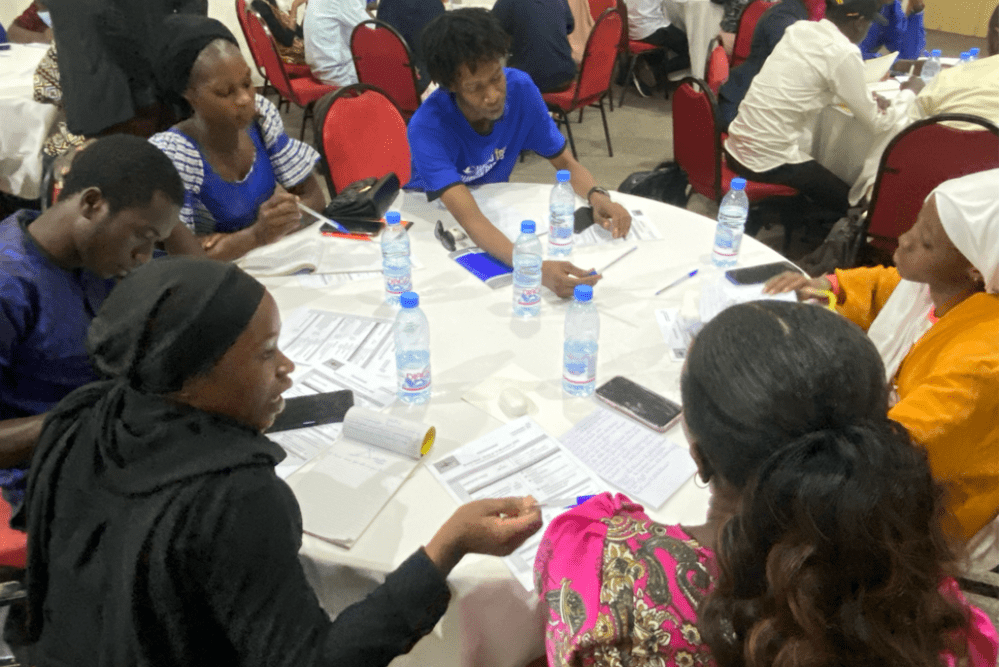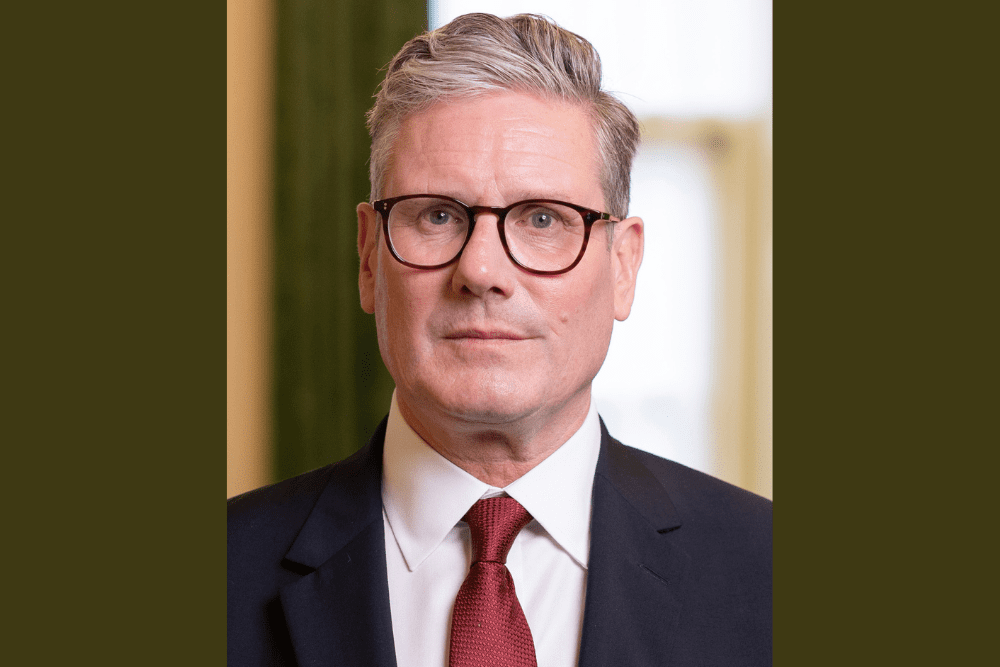By Murielle Gemis and Mariam Traoré – May 11, 2024
63 young activists, aged 18 to 25, 28 women and 35 men, gathered for a training session on Human Rights and good governance from December in honor of the anniversary of the 1948 Universal Declaration of Human Rights.
An educational initiative, focused on Human Rights and good governance, took place from December 11th to 13th, 2023, at the AZALAI Grand Hôtel in Bamako, commemorating the anniversary of the 1948 Human Rights Charter. Organized for 63 participants aged 18 to 25, this three-day training session saw the presence of several key figures.
The results of this training, presented on Wednesday, May 1st, to Ms. Galatée Fouquet, Head of Cooperation at the Embassy of Luxembourg, highlight a deep understanding of the subject matter and increased involvement in various organizations, demonstrating these young people’s willingness to apply this knowledge in their daily lives and communities.

Reflection on the Training: Gathering for Change

Among the partners and educational leaders of this event, Mr. Kabine DOUMBIA, president of the NGO ASRAD Mali, and Ms. Marie Anne MARX, representative of the Embassy of Luxembourg, played a key role as supporters and facilitators of this initiative. The training sessions were conducted by experts, including Ms. Murielle GEMIS, assistant professor in education sciences in Belgium, and Dr. Souleymane SACKO, university professor in Mali, specializing in International Strategy. Additionally, in this context, tools provided by the humanitarian partner Youth for Human Rights International were graciously utilized. Furthermore, several political figures supported this educational initiative focused on Human Rights and good governance by participating in its inaugural sessions.


This three-day session was structured around specific modules. These modules covered various aspects ranging from the dynamics of human rights (LRH), clarifying the terms and principles of Human Rights, to analyzing governance systems and the challenges to overcome. Participants were encouraged to share their experiences, enriching the discussions and strengthening their commitment to these essential causes. Interactive sessions were complemented by practical exercises, including simulations and role-playing games, enabling participants to develop their advocacy and rights defense skills. Additionally, tools and resources were shared to facilitate the integration of Human Rights principles into their daily actions.

Participants Perspectives and Future Challenges
To assess the achievement of the set objectives, a follow-up survey was conducted. It revealed a deep understanding of the knowledge acquired and an increased involvement in various organizations such as “Secretary for the Relations of Graduated Disabled Collective” or “Advisor to the Secretary-General of the UNESCO Club of the IUG.” As another example, some participants testified to the impact of the training on their personal and professional behavior. One of them stated, “Initially, I applied this acquired knowledge through my own behavior conscientiously. It gave me the idea to always think before acting with the utmost respect for human rights so as not to penalize others.” Furthermore, some participants took concrete initiatives to raise awareness in their community. For instance, one mentioned, “I launched a digital campaign to raise awareness about respect for human rights.” Another mentioned speaking up for more vulnerable audiences: “Through advocacy with authorities. Participation in TV and radio programs, notably TV JOLIBA, to address issues facing disabled individuals in Mali.” These various testimonies highlight the positive impact of the training on the participants and their willingness to apply the knowledge acquired in their daily lives and community involvement. They also reflect the participants’ expressed need for additional support, particularly in terms of supplementary training and financial resources. “We must redouble efforts in the fields of education and social welfare, without forgetting financial resources, in order to expand training opportunities and clubs to advocate for human rights and good governance.” This underscores the ongoing importance of this educational initiative in enhancing citizens’ capacity for action in the realm of human rights and good governance.

Conclusion: Towards an Engaged Citizenship
The conclusion of this survey highlights the significant impact of a training on human rights and good governance on civic engagement. The results indicate a notable increase in participants involvement in organizations after the training, particularly in key positions related to the protection of human rights. This reflects a heightened sense of responsibility in promoting and defending human rights within society. Additionally, participants’ responses reveal a deep understanding of human rights and good governance concepts, as well as the ability to apply them in various contexts of their daily lives and community engagement. This knowledge appropriation translates into concrete actions of awareness-raising, education, and advocacy, demonstrating a genuine desire to contribute to social and political change towards a fairer and more respectful society. Furthermore, the expressed needs of participants for additional support underscore the importance of continuing to provide training opportunities and material and financial resources to enhance their capacity for action in the field of human rights and good governance. These conclusions highlight the crucial role of training in empowering citizens and promoting an active and engaged citizenship within society.

Therefore, this report bears witness to the positive impact of this training on the participants, 63 young individuals from various regions of Mali. By strengthening their knowledge and skills, this educational initiative contributes to shaping a new generation that is committed and responsible towards humanity and its differences, with a focus on peace and readiness to strive for a world where human rights are respected and protected.













 English
English French
French Spanish
Spanish German
German Dutch
Dutch Italian
Italian Danish
Danish Portuguese
Portuguese Greek
Greek Russian
Russian Swedish
Swedish Bulgarian
Bulgarian Hungarian
Hungarian Catalan
Catalan Ukrainian
Ukrainian Polish
Polish Basque
Basque Chinese (Simplified)
Chinese (Simplified) Japanese
Japanese Hebrew
Hebrew Arabic
Arabic Swahili
Swahili Amharic
Amharic Irish
Irish Afrikaans
Afrikaans Albanian
Albanian Armenian
Armenian Azerbaijani
Azerbaijani Belarusian
Belarusian Bengali
Bengali Bosnian
Bosnian Cebuano
Cebuano Chichewa
Chichewa Chinese (Traditional)
Chinese (Traditional) Corsican
Corsican Croatian
Croatian Czech
Czech Esperanto
Esperanto Estonian
Estonian Filipino
Filipino Finnish
Finnish Frisian
Frisian Galician
Galician Georgian
Georgian Gujarati
Gujarati Haitian Creole
Haitian Creole Hausa
Hausa Hawaiian
Hawaiian Hindi
Hindi Hmong
Hmong Icelandic
Icelandic Igbo
Igbo Indonesian
Indonesian Javanese
Javanese Kannada
Kannada Kazakh
Kazakh Khmer
Khmer Korean
Korean Kurdish (Kurmanji)
Kurdish (Kurmanji) Kyrgyz
Kyrgyz Lao
Lao Latin
Latin Latvian
Latvian Lithuanian
Lithuanian Luxembourgish
Luxembourgish Macedonian
Macedonian Malagasy
Malagasy Malay
Malay Malayalam
Malayalam Maltese
Maltese Maori
Maori Marathi
Marathi Mongolian
Mongolian Myanmar (Burmese)
Myanmar (Burmese) Nepali
Nepali Norwegian
Norwegian Pashto
Pashto Persian
Persian Punjabi
Punjabi Romanian
Romanian Samoan
Samoan Scottish Gaelic
Scottish Gaelic Serbian
Serbian Sesotho
Sesotho Shona
Shona Sindhi
Sindhi Sinhala
Sinhala Slovak
Slovak Slovenian
Slovenian Somali
Somali Sundanese
Sundanese Tajik
Tajik Tamil
Tamil Telugu
Telugu Thai
Thai Turkish
Turkish Urdu
Urdu Uzbek
Uzbek Vietnamese
Vietnamese Welsh
Welsh Xhosa
Xhosa Yiddish
Yiddish Yoruba
Yoruba Zulu
Zulu